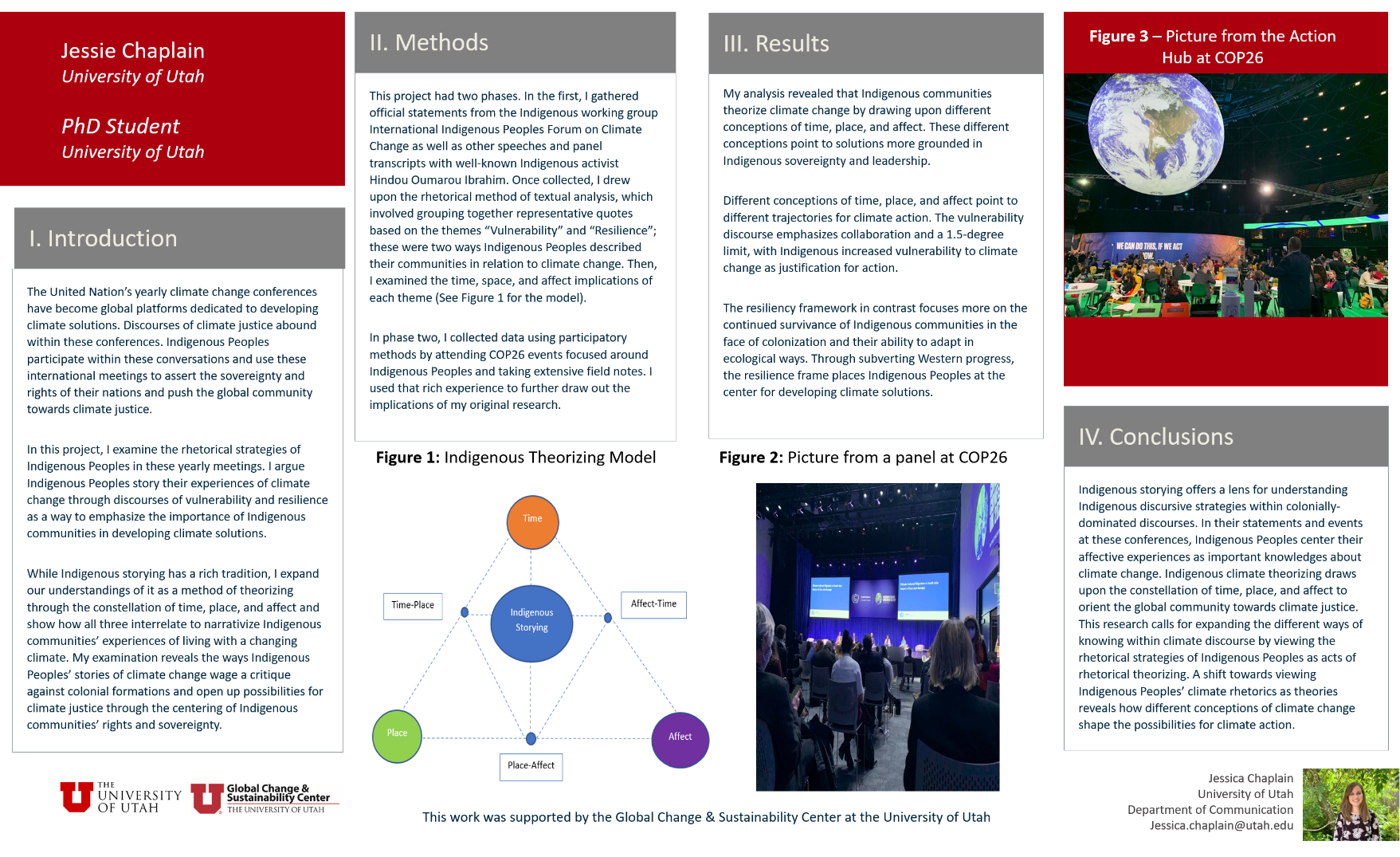Indigenous Theorizing, Resiliency, and Climate Justice
–Jessie Chaplain
[bs_collapse id=”collapse_bb86-afd7″]
[bs_citem title=”Bio” id=”citem_e610-6c22″ parent=”collapse_bb86-afd7″]
I am a PhD student in the Department of Communication. My research examines climate justice activism within international discourse and unpacks how the way we describe and define climate change influences the possibilities for climate action. My current work draws on textual analysis and participatory research methods to analyze worldwide Indigenous communities’ climate activism within the United Nations climate change conferences. I am invested in how these climate justice rhetorics can intervene within colonial frameworks and orient the global community towards more just futures.[/bs_citem]
[bs_citem title=”Abstract” id=”citem_eca8-96a7″ parent=”collapse_bb86-afd7″]
The United Nations Climate Change Conferences have become an important arena for climate justice activism. In this project, I explore the ways worldwide Indigenous communities story their experiences with climate change to disrupt colonial temporal, spatial, and affective power formations. I argue Indigenous theorizing through storying are discursive strategies that situate Indigenous Peoples as leaders in developing climate solutions. I provide the constellation of time, place, and affect to understand how Indigenous theorizing about climate change draws upon discourses of resilience to assert Indigenous sovereignty and self-determination. Grounded in Indigenous methodologies, this paper aims to nuance our understandings of climate change, climate politics, climate justice, and Indigenous climate activism within the United Nations.
[/bs_citem]
[bs_citem title=”Video Presentation” id=”citem_780c-0f71″ parent=”collapse_bb86-afd7″]
Our understandings of climate change and climate action are tied to different understandings of time, space, and emotion. Indigenous Peoples tell stories about climate change in ways that can contradict how we typically understand the global problem. Understanding these differences helps us see other ways of thinking about climate solutions. Indigenous Peoples’ unique experiences open up possibilities for international climate action.
[/bs_citem]
[/bs_collapse]

